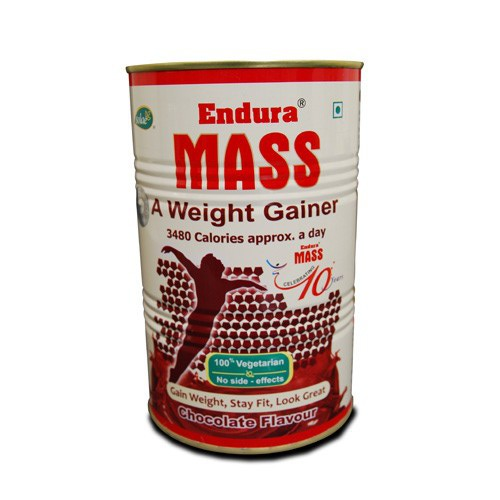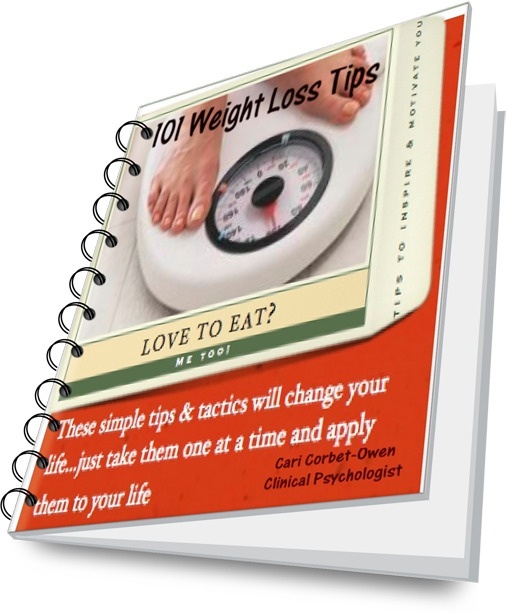How calories are used by the body.
Question
I have heard this 2 ways concerning storing and burning calories, what is correct?
#1 You have to eat a certain amout of calories to function, if you don't eat enough then the body takes the ones you do eat and stores them and doesn't expend any because it doesn't know when it's going to get any more.
#2 The body has to burn calories no matter what so of your eating a very low calorie diet & exercising then your body cannot help but burn calories so you "will" loose weight.
If your exercising and drinking lots of water to keep your metabolism moving your body is going to burn calories correct? As long as your not eating too many calories & they are all healthy and of a balanced diet.
Hello,
Great question. Perhaps this will shed some light for you.
Metabolism . . . calories . . . energy . . . they all really amount to one thing. HEAT!
Metabolism is simply your internal fire with calories providing the fuel for the flame . . . and a calorie is actually a measure of heat! There are many products on the market that claim to be great metabolic boosters. In most cases these are simply stimulants that cause a heart rate elevation and a slight temporary increase in heat. To truly understand and take control of your metabolism, read the following:
While everyone knows somebody who can eat anything and not get fat, and everyone believes "those people" were granted some genetic gift, the fact is, we are not victims of our metabolisms but the creators!
Metabolism, by definition, simply means, the speed with which your body burns through food. One of the essential keys to speeding metabolism is putting the right foods in to your digestive tract frequently!
There are three major "players" in the SYNERGY of the "metabolism game:"
First is the amount of muscle you maintain. Muscle is metabolically active tissue, thus, the more muscle you have on your body, the greater your caloric burn at any given moment. That's why resistance training is so important if you want long term weight reduction.
Second, your production of thyroid hormones, T3, and T4, both which can be affected negatively by repeated periods of calorie deprivation (dieting). To support adequate and optimal thyroid hormone production, "feed" the body frequently the proper balance of protein, carbs, and essential fats.
Third, the types and amounts of food you "ask" your body to ingest, digest, and assimilate along with the frequency of feedings. Ingesting a lean protein, starchy carbohydrate, and fibrous carbohydrate every 3 - 3 1/2 hours offers a very supportive nutrition program to stimulate metabolic processes.
When you perform any movement, action, or even when you initiate a thought, that asks nerve transmission to take place followed by muscle contraction and whether you are walking to the refrigerator or digesting a rare tuna steak, that energy expenditure is going to require a caloric expenditure. With that awareness you'll understand that the act of eating and digesting food is "thermic" or heat producing. While fats are relatively simple for your body to deal with and require a relatively small energy expenditure, the digestion and assimilation of lean proteins and complex carbs requires a good amount of work. By replacing high fat foods with the more thermic proteins and carbs, the act of eating in itself becomes a metabolic stimulus. It's important to understand that each gram of fat yields more than twice as many calories as an equal sized serving of protein and/or carb. In order to match caloric intake and stimulate greater caloric burn, you will find with a shifting in food choices from fatty foods to more supportive meals, you eat far more food, often more than twice as much, as your metabolism speeds up! Best of all, as your metabolism begins to fire up, it gives you even more license to "cheat" and not suffer for it. With the proper combination of aerobic exercise, resistance training, and supportive nutrition, you can soon become one of those "I Can Eat Anything and Not Get Fat" people!
What is a calorie?
More accurately, that which we refer to as a "calorie" is a kilocalorie. Oh, that sums it up, doesn't it? What in the world is a kilocalorie?!?!? Well . . . it's the amount of heat required to raise 1 kilogram of water one degree celcius.
What Does That Have to Do With Food!??!!? Bear with me. You'll soon understand.
Energy is actually heat production. Whenever muscle contracts to initiate movement, heat is being generated thus calories are being burned. If you were to measure your "temperature" right now, you'd probably be in the vicinity of 98.6 degrees. Your body maintains heat on an ongoing basis, and since a calorie is a measure of heat production, it correlates to the amount of energy a food is capable of providing.
When the number of calories that you take in equals the number of calories that you expend in energy, you are maintaining an energy balance and your weight will not fluctuate very much. Conventional "diet wisdom" (a contradiction in terms) dictates that if you cut back on calories, you will be at an energy deficit, thus you will lose weight. Unfortunately, if long term weight loss is the goal, it's not quite that simple. The best way for me to describe the trap dieters fall into is to provide you with a real-life example of a diet experience. I'll use a woman in this example, but it can be a man as well.
The Weight Loss Victim
A woman goes into the weight loss center. She's seen the ads. "Lose 30 pounds in 30 days." "Lose weight, lose inches." "Isn't it time for a new you?" She's ready. She apprehensively walks through the door. Within seconds a "professional diet counselor" greets her and they sit in an attractively furnished conference area as they begin to discuss food. After a bit of calculating, the Diet Counselor begins the presentation, "It appears as if you're taking in 2300 calories a day. We will cut you back to 1200, give you (which really means "sell" you) these packages of food and delicious shakes . . . and you'll lose weight!"
A week later the woman returns to the diet center after following "the program" and the first thing they do is direct her to the scale. She's thrilled! She lost five pounds! In a week! She buys more packaged food and a week later the scale tells her she's dropped yet another two pounds! A funny thing happens in the fifth week. She gets on the scale, just as she has every week prior, but on this day the scale is no longer her friend. She's stalled! She weighs the same thing she weighed the week before! She begins to panic, but the diet counselor's ready. "Don't worry, you just hit (here's the word they always use) . . . the Plateau! We'll just cut you back to 900 calories. It just means smaller packages of food and smaller shakes."
Sure enough, the woman begins to lose weight again. The only problem is, this time the weight loss is accompanied by this little voice inside her head that says things . . . like . . . "cheesecake." "Ice cream." She's getting cravings and she begins to question her own willpower. After a few days of fighting those little voices, she gets back on the scale and realizes she has hit the second plateau. Her disappointment leads to submission. She gives in to the voices, and while at first she intends to have just a few spoonfuls of ice cream, she finds herself caught up in an all out binge! All the weight comes back! Here's the worst part. She questions her own willpower. She blames herself!
The Fitness Truth Regarding Calorie Deprivation
The voices in her head had nothing to do with willpower. They were in fact the ganging up of these little chemical messengers in her brain (neurotransmitters) with little enzymes trying to drive her to that which she needs to survive. Food! Her body, in its attempts to protect her from starvation, doesn't understand she's dieting to lose weight. It is trying to save her life, thus, those built in protective mechanisms drive her the nutrient she can survive off of the longest . . . namely fat . . . and that substance that will provide the quickest energy . . . sugar. Once she gives in to the cravings, her blood sugar skyrockets, her pancreas begins kicking out massive levels of insulin, and her body hormonally shifts into the "binge" state. The binge was not only inevitable, it was CAUSED BY THE DIET!
There's something else the diet counselor didn't tell her. When she was losing weight she was losing three things. Firstly, she was losing water weight. That is meaningless in the quest for long term weight reduction, but a great trick for the diet centers. They can put you on the scale after only a week and lead you to believe the diet's "working." Secondly she's losing a little bit of fat, but thirdly, and most significantly, she's losing muscle tissue! The diet is leading to her body cannibalizing her own muscle tissue. Muscle is metabolically active tissue. Fat isn't. That means muscle burns calories and fat doesn't. When you sacrifice muscle, you in turn slow your metabolism! Muscle is also the site on your body where fat is burned. Starvation induced muscle loss reduced the body's momentary fat burning ability. The end result of a program based upon calorie deprivation is a slower metabolism, an unsupportive shift in hormonally induced appetite, a reduction in fat burning capacity, and an inevitable accumulation of fat. When you embark upon a diet, you are literally programming your body to get really good at accumulating fat in the future!
Conclusion
So, why have you lost weight on many diets, and then gained it back? Quite frankly, because that's what diets do! How can you spot a "good" diet? Well, if it has the word "diet," and that signifies "deprivation," it will not serve you in a positive way. A "good nutrition program" is one that stimulates metabolism, provides all the nutrients needed for survival, energy, tissue regeneration, and health, and focuses more on what you "should" eat rather than what you shouldn't.
This should answer a few of your questions. After you're done reading it, if you have any other questions just ask.
To Your Success!
Mark Shields
Related Articles
-
glucosaminw sulphat
Questionwhether glucosamine is harmful?usefull? Answerglucosamin
-
serving size question
QuestionHow can I determine if a serving size means cooked, or no
-
weight.
QuestionHi I really want to lose weight Ive struggled with my wei
-
Sport Drinks
QuestionMy husband is 70 years old and does not work out. H
-
Flaxseed oil/Omega-3
QuestionHi, I was shocked to read in a nutrition column in the l
-
God fat-bad fat, good cholesterol-bad cholesterol
QuestionHi a friend of mine told me that if I eat low/good choles




